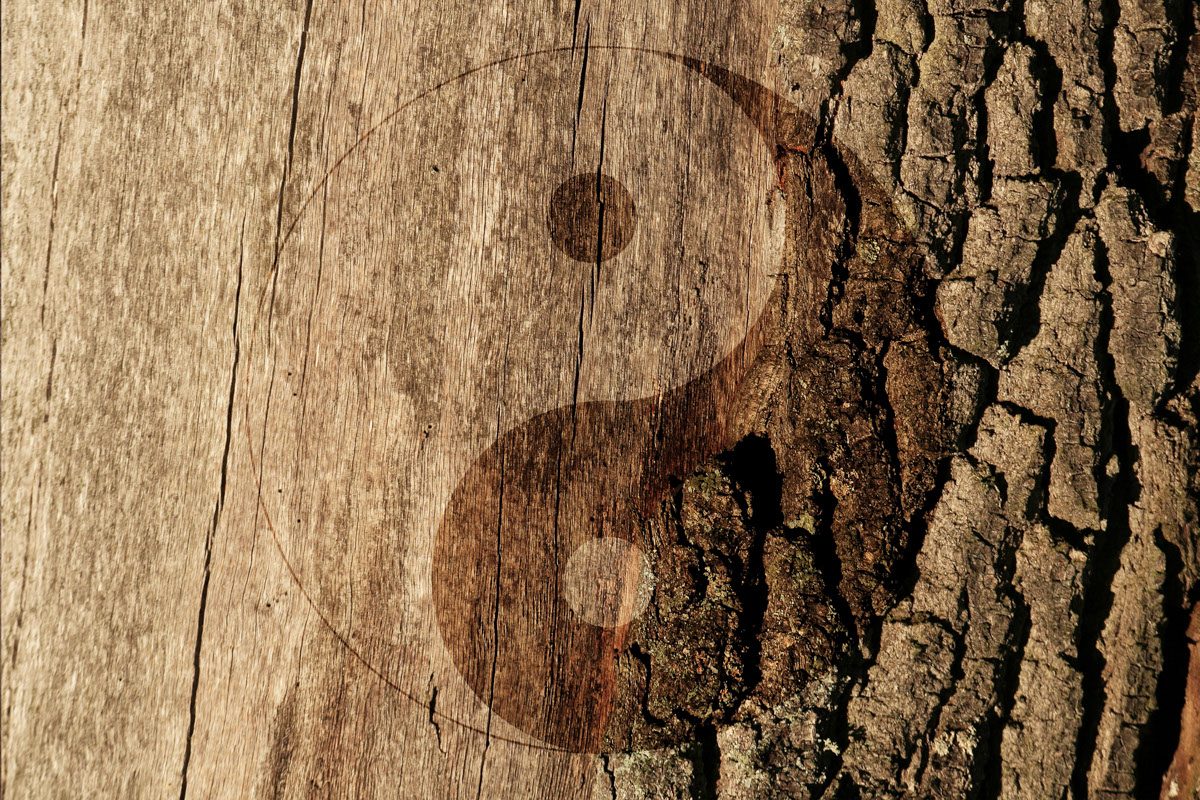How Does Traditional Chinese Medicine View Human Life?
(I) What is traditional Chinese medicine?(中醫)
(II) What is Qi, Qi mechanism? ( 氣、氣機)
(III) Yin and Yang, Five Elements (陰陽、五行)
(IV) Five Zang, Six Fu, Extraordinary Fu (五臟、六腑、奇恒之腑)
(V) Meridians (經絡)
(VI) Constitution (體質)
(VII) Preventive Treatment of Disease (治未病)
(VIII) Health Preservation(養生)
(I) What is traditional Chinese medicine?
Traditional Chinese medicine, originating in China and with a history of more than 3,000 years, is a comprehensive science that studies the laws of health and disease transformation in human life activities and their prevention, diagnosis, treatment, rehabilitation, and health care, based on the theory and practical experience of traditional Chinese medicine.
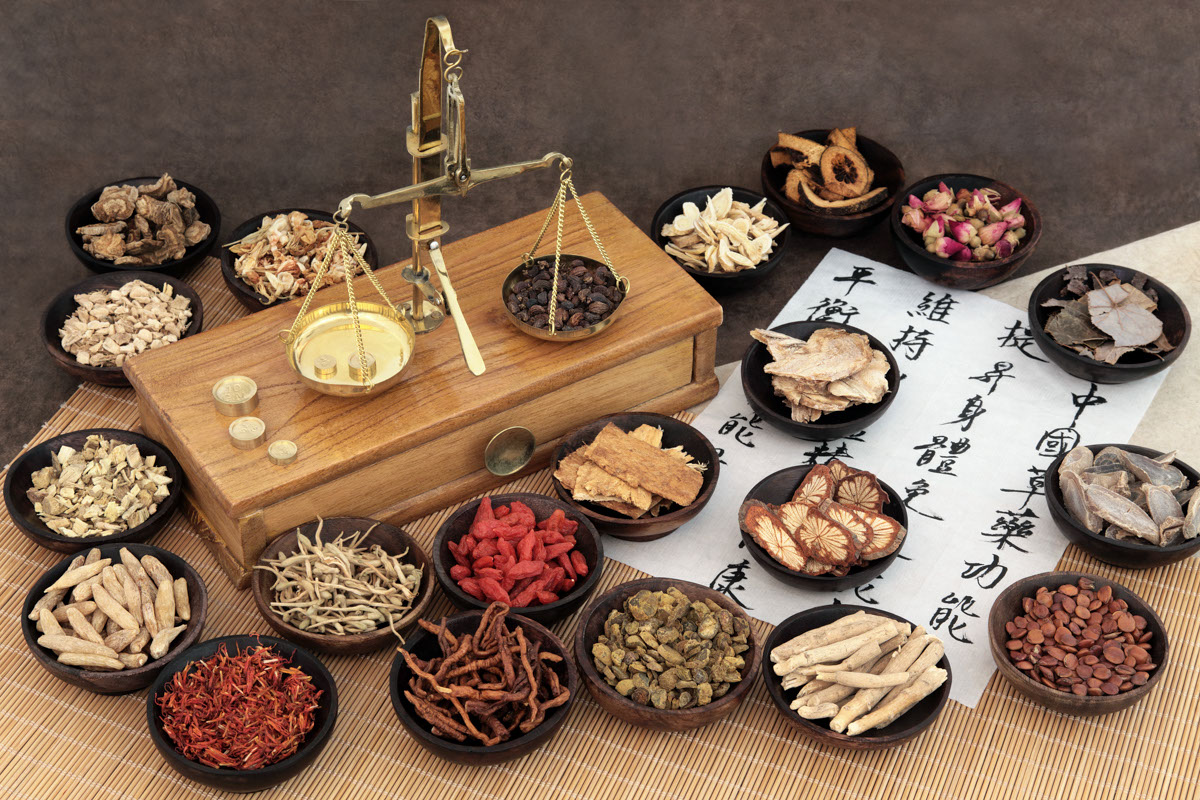
((II) What is Qi, Qi mechanism?
"Qi" is the ancient Chinese perception of the universe and life. In ancient philosophy, "Qi" is seen as a subtle, flowing, energy-rich substance, and all natural phenomena and life are the results of the movement and change of Qi.
(Note: The World Health Organization (WHO) has standard translations for these proprietary terms of traditional Chinese medicine.)
Traditional Chinese medicine believes that Qi is the foundation of life. It is not only the most basic substance that constitutes the human body and maintains human life activities, but also can dominate and coordinate the functional activities of all parts of the human body. If the movement of Qi is abnormal, it will lead to the occurrence of diseases, so traditional Chinese medicine says "all diseases are born from Qi"(百病生於氣)
The "Qi mechanism" mentioned in traditional Chinese medicine refers to the movement of Qi. Because the movement and change of Qi is the basic characteristic of human life activities, traditional Chinese medicine emphasizes grasping the "Qi mechanism", which is to grasp the characteristics of the functions of the human body's organs and the causes of diseases. The treatment of diseases in traditional Chinese medicine pays attention to regulating the Qi mechanism, including:
- Smoothing Qi 順氣
- Descending Qi 降氣
- Raising and lifting 升提
- Dispersing and releasing 宣發
- Convergence and other treatments 收斂等治法
Similarly, in normal life, how to keep oneself "calm and relaxed, with a smooth Qi mechanism"(心平氣和,氣機舒暢)is also very important.
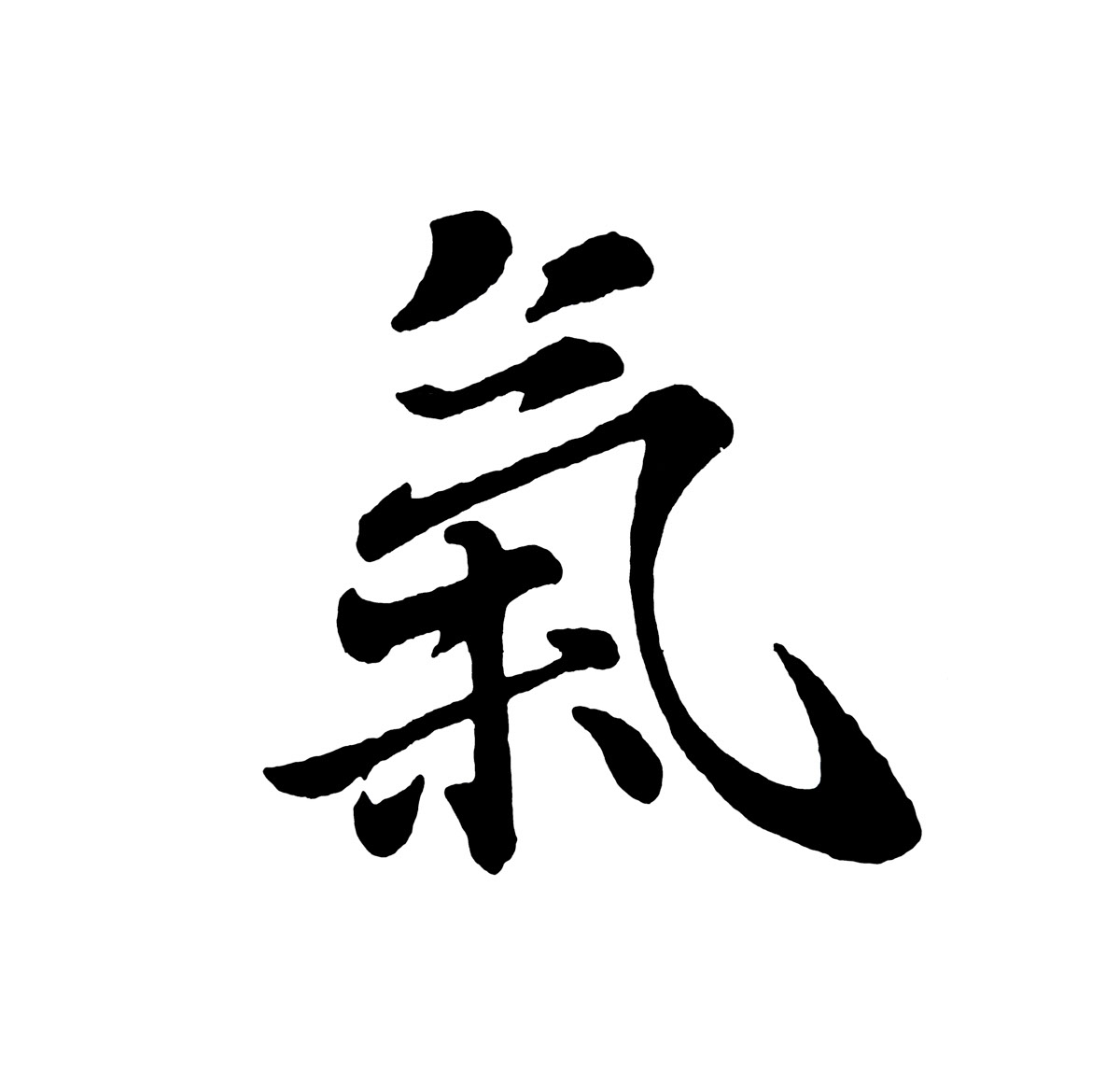
(III) Yin and Yang, Five Elements
Yin and Yang are binary opposition concepts in traditional Chinese philosophy. Traditional Chinese medicine believes that "Yin and Yang" is the law followed by all things in heaven and earth. If Yin and Yang are in harmony, the body and mind are healthy; if Yin and Yang are not in harmony, all kinds of diseases will occur. The fundamental way to prevent and treat diseases is to harmonize Yin and Yang.
(Note: China's Yin and Yang follow the ancient day (i.e., Yang) and month (i.e., Yin).)
Traditional Chinese medicine often classifies things in terms of Yin and Yang, representing two aspects of things. For example:
- Men are Yang, women are Yin; 男為陽,女為陰;
- Sun is Yang, Moon is Yin; 日為陽,月為陰;
- Daytime is Yang, nighttime is Yin; 晝為陽,夜為陰;
- Spring and summer are Yang, autumn and winter are Yin; and 春夏為陽,秋冬為陰;及
- The Qi of the human body is Yang, and the blood is Yin; and so on. 人體之氣為陽,血為陰;等等。
In addition, anything with the attributes of "rising, moving, warmth, outward"(具有上升、運動、溫熱、向外) belongs to Yang; anything with the attributes of "descending, stillness, cold, inward" (下降、靜守、寒涼、向內 )belongs to Yin.
Yin and Yang are the foundation of each other, complement each other, are of one entity, and establish a balanced and coordinated relationship. Traditional Chinese medicine regards this "balance and harmony of Yin and Yang" (陰陽的平衡和諧)as the best state of life activities.
The imbalance of Yin and Yang is the root cause of disease; therefore, harmonizing Yin and Yang is the most important rule of treating diseases and maintaining health.
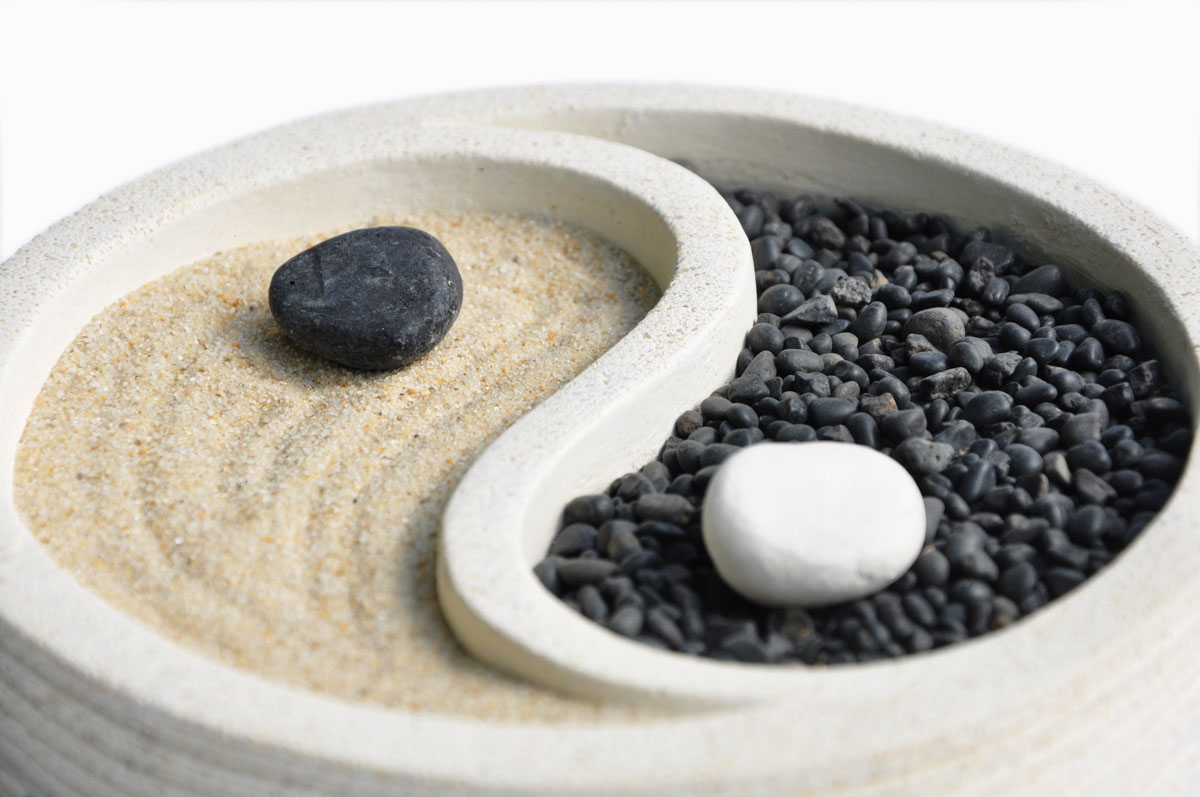
The Five Elements(五行) is a classification system of traditional Chinese philosophy, which divides all things in the universe into five categories according to their characteristics: metal, wood, water, fire, and earth, (金、木、水、火、土 )collectively referred to as "Five Elements". Traditional Chinese medicine uses the characteristics of the Five Elements to analogize the life state and operation mode of the human body.
The Five Elements have their characteristics, which can be simply summarized as:
- Wood has the characteristic of rising and expanding; 木具有升發舒展的特點;
- Fire has the characteristic of warmth and rising; 火具有溫熱升騰的特點;
- Water has the characteristic of moisturizing and descending; 水具有滋潤下行的特點;
- Metal has the characteristic of killing and converging; and 金具有肅殺收斂的特點;及
- Earth has the characteristic of bearing and nurturing. 土具有承載生化的特點。
You may find these characteristics a bit difficult to understand, but if we understand that China was founded on agriculture thousands of years ago, and these wood, fire, earth, metal, water and their characteristics are all related to the farming environment, it will be easy to understand.
Traditional Chinese medicine classifies the organs of the human body into the Five Elements:
- The liver belongs to wood, because the liver has the characteristic of regulating and smoothing, if it is not properly adjusted, the person will be depressed or angry; 肝臟歸於木,因肝具調達舒暢的特性,不調達則抑鬱或暴怒;
- The heart belongs to fire, because the heart has the characteristic of being vigorous and full, if it is not full, the person will be weak or have a feeling of ‘blockage’; 心臟歸於火,因心氣具有旺盛充盈的特點,不充則虛弱或阻滯;
- The spleen belongs to earth, because the spleen has the characteristic of transporting and distributing, just like the earth giving birth to all things; 脾臟歸於土,因脾氣具有運化輸布的特點,好像土地化生萬物一般;
- The lungs belong to metal, because the lungs have the characteristic of descending, if the lung qi is reversed, the person will suffer from coughing, asthma, etc.; and 肺臟歸於金,因肺氣具有肅降的特點,肺氣如果上逆就會出現咳嗽、氣喘等;及
- The kidneys belong to water, because the kidney essence and kidney qi have the characteristic of nourishing the human body. 腎臟歸於水,因腎精腎氣具有滋養人體的特點。
"Wood, fire, earth, metal, water" the five most basic substances are the most indispensable elements that make up the world. These five substances generate but also restrain each other(相生相克), and are in constant motion and change.
The Five Elements(五行) have a relationship of mutual generation(生):
Wood generates fire (metaphor - wood is easy to burn),
Fire generates earth (metaphor - fire burns objects into ashes),
Earth generates metal (metaphor - metal is hidden in the earth),
Metal generates water (metaphor - metal melts into liquid when heated), and
Water generates wood (metaphor - all plants need to be moisturized by water).
There is also a restraining relationship(克):
Wood restrains earth (metaphor - when plants grow, the soil will crack),
Fire restrains metal (metaphor - fire can melt metal),
Earth restrains water (metaphor - ancient people used earth to build dams in case of floods),
Metal restrains wood (metaphor - ancient people used metal to cut wood), and
Water restrains fire (metaphor - water is naturally used to put out fire).
Traditional Chinese medicine often uses these relationships of generation and restraining to explain physiological and pathological phenomena in the human body.
For example:
"Wood generates fire", refers to the nourishing effect of the liver on the heart; if the liver qi is strong, the heart qi will naturally be strong;
- Next, "fire generates earth", then the spleen qi will also be strong; this refers to the relationship of mutual generation;
- However, if the liver organ qi is too strong, it will affect the qi of other organs and disrupt the balance. For example: if the qi of the liver is too strong, it will restrain the qi of the spleen.
A common example in life is: when a person gets angry, the liver ‘fire’ flares up, and then the person loses appetite, directly affecting the spleen and stomach. Therefore, traditional Chinese medicine believes that for the body's functions to be normal, there needs to be a balanced and coordinated relationship between the five elements.

(IV) Five Zang, Six Fu, and Extraordinary Fu
The five organs(五臟) of the human body include the "heart, liver, spleen, lungs, and kidneys"(心、肝、脾、肺、腎)
The "five zang" in traditional Chinese medicine is not simply the five organs in anatomy, but refers to five functional systems represented by the organs. The organs in Western medicine refer to anatomically visible, substantial organs with specific morphological tissues. The five zang in traditional Chinese medicine refers to the collection of five functional systems, which are wider in scope than merely the organs themselves.
If we look at the five zang system of traditional Chinese medicine from the perspective of modern medicine, some people have roughly made the following comparisons:
- Qi mechanism problems and emotional regulation are attributed to the liver system;
- Blood circulation and mental activity are attributed to the heart system;
- The digestive system is attributed to the spleen system;
- Respiration and water metabolism are attributed to the lung system; and
- The reproductive system and water circulation are attributed to the kidney system;
The functional system of zang-fu(臟腑)in traditional Chinese medicine believes that the internal five zang(臟)of the human body are related to the external body, etc. For example:
Traditional Chinese medicine believes that problems with a person's eyesight, tearing in the wind, and other eye problems are often considered to be liver problems, and treatment often starts from the liver. If a person is irritable and easily angered, it is often considered that the liver fire is strong, and the liver fire should be reduced.
Therefore, the five zang functional system is the basis for maintaining health and treating diseases in the human body. The "image of the five zang"(五藏之象)is not only relevant in the clinical practice of traditional Chinese medicine, but also has a wide range of applications in life.
* Why is it said that "the liver is the general's organ"?(肝為將軍之官)
In ancient times, a "general" was a person who led soldiers into battle and commanded the three armies. They were required to be brave, strategic, and resolute. Traditional Chinese medicine believes that "the liver is yang and strong", so the liver is considered the "general's organ". Usually, if a person is brave and strategic, it indicates that their liver qi and liver blood are sufficient; if they are timid and fearful, it means that their liver qi is deficient and their liver blood is insufficient. Traditional Chinese medicine summarizes the function of the liver as "the liver stores blood and is responsible for excretion", that is, the liver is responsible for storing the body's blood and regulating the body's qi. If the liver qi is not smooth, a person will be irritable and easily angered, just like some women are prone to temper tantrums before their menstruation, which is due to the liver qi not being smooth, thereby affecting their emotions.
* Why is it said that "the heart is the monarch's organ"?(心為君主之官)
The monarch was the emperor in ancient times, an image of the highest ruler. The phrase "the heart is the monarch's organ" indicates that the heart has the highest status among the five zang and six fu and is responsible for governing them. Traditional Chinese medicine summarizes the function of the heart as "the master of blood vessels and the master of spirit", that is, the normal operation of blood vessels, the smooth flow of qi and blood, and the normal spirit of a person are all governed by the heart.
* Why is it said that "the spleen is the organ of remonstrance"?(脾為諫議之官)
The "organ of remonstrance" in ancient times was specifically responsible for giving advice to superiors. Traditional Chinese medicine believes that the spleen is located in the center and is responsible for monitoring other organs (surroundings). When diagnosing a disease, traditional Chinese medicine often asks: "How is your appetite recently? If a person does not want to eat, or overeats and drinks, it is the spleen hinting: there may be a problem with the function of the organs. Traditional Chinese medicine summarizes the function of the spleen as "the master of transportation and transformation, the master of blood, and the master of ascension", that is, it is responsible for transporting and transforming the essence of water and grain (nutrition) throughout the body, controlling blood, and enhancing the organs.
* Why is it said that "the lung is the organ of the prime minister"?(肺為相傅之官)
The prime minister was a position with the highest status and extremely important identity that assisted the monarch in ancient times. Traditional Chinese medicine lists the lungs as the "organ of the prime minister", pointing out that the lungs have the function of assisting the heart in governing and regulating the whole body. Traditional Chinese medicine summarizes the function of the lungs as "the master of the body's qi, the master of dissemination and descending, the regulator of waterways, nourish a hundred veins, and the master of seasons"(主一身之氣,主宣發、肅降,通調水道,朝百脈,主治節), that is, the operation of the body's qi, blood vessels, and body fluids is the responsibility of the lungs. The lungs are in charge of "po"(魄 or energy )Western psychology believes that po is the instinct of the human body. Traditional Chinese medicine believes that whether a person has po or energy reflects the deficiency of lung qi.
* Why is it said that "the kidney is the organ of strength"?(腎為作強之官)
"The organ of strength" refers to the strong man standing on the chariot during ancient wars. Describing the kidney with such a strong official indicates that the source of human strength comes from the kidney, which is what Chinese medicine refers to as "the kidney is the root of congenital"(腎為先天之本). A person's physical strength, whether or not they have energy, comes from the kidney. Chinese medicine summarizes the functions of the kidney as "the kidney governs growth, development, reproduction, water and fluid metabolism, and respiration". Clinically, many diseases of growth retardation, infertility, abnormal urination, and patients with chronic cough and asthma are treated by Chinese medicine from the kidney.
Is there a relationship between the "five organs and emotions"(情志)?
Chinese medicine believes that there is a close relationship between the five organs and emotions. Chinese medicine categorizes human emotions into "seven emotions", namely joy, anger, worry, thought, sadness, fear, and shock (喜、怒、憂、思、悲、恐、驚 ). And correspond to the five organ systems, namely:
- The emotion of the liver is anger; 肝的情志是怒;
- The emotion of the heart is joy; 心的情志是喜;
- The emotion of the spleen is thought; 脾的情志是思;
- The emotion of the lung is worry and sadness; and 肺的情志是憂愁、悲傷;及
- The emotion of the kidney is fear and shock. 腎的情志是恐、驚。
For example: In life, we see that when a person is frightened, they will have urinary incontinence, which is the kidney being injured by fear. Because emotions are related to the five organs, therefore, if you often have bad emotions, it also prompts people to ask whether there are some problems with your body. Therefore, Chinese medicine often says: "People with good health have good emotions; people with bad emotions all the time must have problems somewhere in their body".
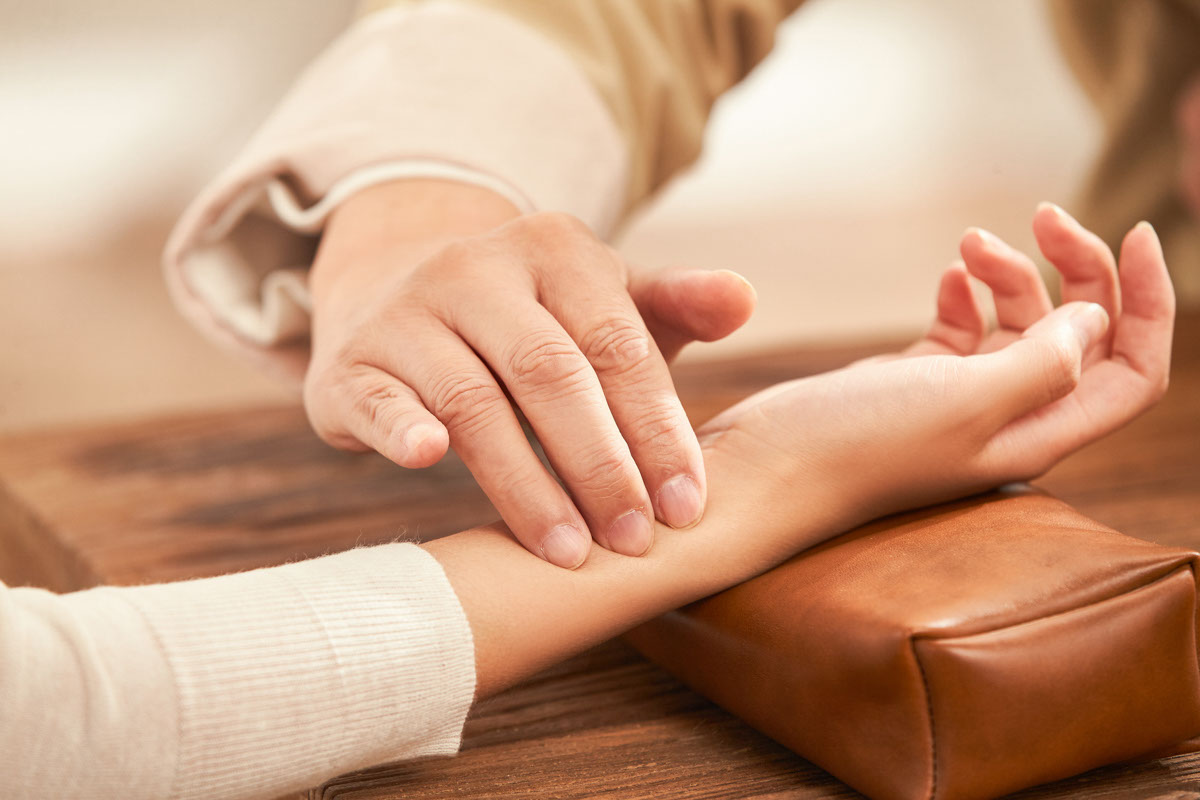
What is the "six fu"(六腑)?
The "six fu" refers to
- Gallbladder, 膽、
- Stomach, 胃、
- Small intestine, 小腸、
- Large intestine, 大腸、
- Bladder; and 膀胱;和
- Triple burner. 三焦。
Their main function is digestion and absorption, transferring the essence to the five organs for storage.
Chinese medicine also has some vivid official metaphors for the six fu, such as:
- The gallbladder(胆) is the "official of justice"(中正之官), equivalent to a judicial official, a character like Bao Qingtian in ancient times, emphasizing justice, therefore, Chinese medicine believes that a person's decision-making power is dominated by the gallbladder;
- The stomach (胃)is the "official of the granary"(倉廩之官), that is, the stomach is the manager of the granary, all the food and drink are first entered into the stomach, and the nutrition of the whole body is obtained from the stomach;
- The small intestine(小腸) is the "official of reception"(受盛之官),, which means the function of the small intestine is absorption. This official is like a tax commissioner, after absorbing a lot of things, it can't keep them for itself, it must be handed over to the "state" (five organs);
- The large intestine(大腸) is the "official of transmission"(傅道之官), which is the official in charge of road transportation. It vividly explains the function of the large intestine in transmitting water and waste;
- The bladder(膀胱) is the "official of the provincial capital"(州都), which is the official in charge of the reservoir. It vividly explains the function of the bladder in managing the storage and excretion of water;
- The Triple Burner(三焦) is a concept unique to traditional Chinese medicine, which is believed to be the tendons, membranes, fats or other connecting substances that connect the five zang and six fu. Modern research suggests that it is the reticular tissue of the human body. The Triple Burner is the "official of the sluice"(決瀆之官), the official in charge of water regulation in ancient times. China has always attached great importance to water conservancy, such as Yu the Great's control of floods, which is a great achievement. Comparing the Triple Burner to the official of water conservancy also illustrates the importance of the Triple Burner. It is like a hub in the human body, responsible for the regulation of water metabolism in the entire system.
In addition, the Triple Burner can also be used as a method of dividing the parts of the human body. :
-the parts above the diaphragm, including the heart and lungs, and the head and face, belong to the upper burner;
-the parts below the diaphragm and above the navel, including the spleen, stomach, liver and gallbladder, belong to the middle burner; and
-the parts below the navel, including the small intestine, large intestine, kidney, bladder, female uterus, seminal vesicle and other organs belong to the lower burner.
What is "Extraordinary Entrails"?(奇恒之腑)
Extraordinary Entrails refers to the brain, marrow, bone, pulse, gallbladder, and female uterus.(奇恒之腑是指腦、髓、骨、脈、膽、女子胞的共稱) They are all organs that store essence and qi, but they are not named as Zang because they are all hollow organs. However, they all store essence and qi and do not leak, and so they are termed extraordinary entrails. In addition, except for the gallbladder, these extraordinary entrails do not have a corresponding exterior and interior, and do not belong to the five elements, but are related to the eight extraordinary meridians(奇經八脈).
The brain, also known as the "Sea of Marrow"(髓海), is deeply hidden in the head. Its exterior is the head and face, and its interior is the brain and marrow. It is the gathering place of essence and spirit, so the brain is also called the "Mansion of the Primordial Spirit"(元神之府). Its main functions are: to control life activities, to control consciousness, and to control sensory movement.
The female uterus, also known as the womb, is the internal reproductive organ of women. It governs menstruation and nurtures the fetus. It is a normal physiological phenomenon of the action of the Zang, meridians, and qi and blood on the uterus. The female uterus is closely related to the Chong, Ren, Du, Dai and twelve meridians (沖、任、督、帶及十二經脈).
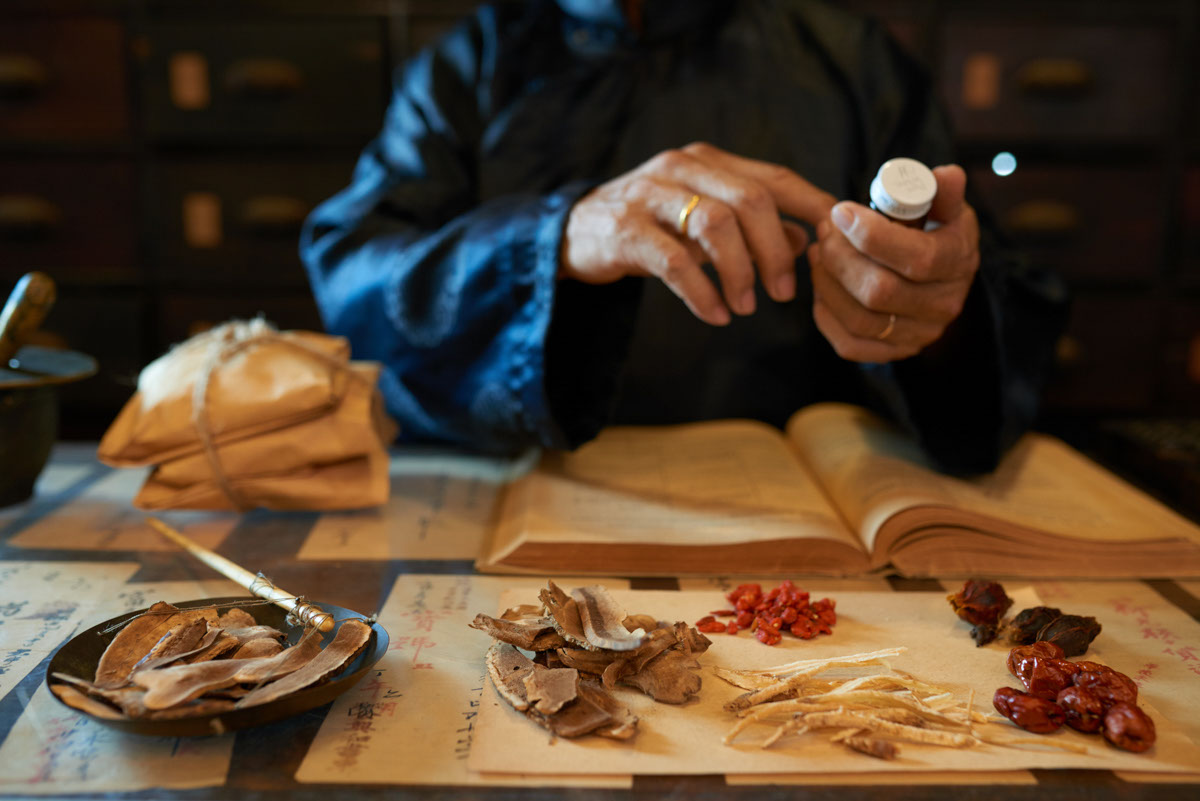
(V) Meridians(經絡)
(1) Definition
Meridians are the connecting pathways between the organs in the human body.
The original meaning of "meridian"(經) is "vertical silk"(縱絲 ), which means pathway.
The original meaning of "collateral"(絡) is "network"(網絡), similar to the auxiliary roads branching out from the main road.
In traditional Chinese medicine, "meridians" are seen as the main pathways in the human body, existing inside the body; "collaterals" are seen as the branches of the pathways.

Together, the meridians and collaterals (經脈和絡脈)form the "meridian-collateral" system (經絡系統) in traditional Chinese medicine, which functions to:
- Circulate qi and blood throughout the body;
- Connect organs, body parts, and orifices;
- Communicate between the upper and lower, inside and outside; and
- Sense and transmit information.
The "meridian-collateral" system of the human body is an important part of the body's structure.
Many martial arts novels often mention "unblocking the meridians", which mostly means a foundation that needs to be established for high martial arts skills. So, do meridians really exist? What are meridians?
In recent years, with the development of technology and the integration of modern multidisciplinary studies, many researchers have explored the phenomenon of meridian sensation. Since the 1970s, nearly 200,000 people have been surveyed and tested, and the results show that the phenomenon of meridian sensation objectively exists, and is not significantly related to region, ethnicity, or gender, but is related to age, physique, genetics, and other factors.
(2) The commonality of meridian sensation
Research has also found that the sensation of meridian sensation has commonality, commonly seen as:
- Sore;
- Numb;
- Swelling;
- Pain;
- Cold;
- Hot;
- Twitching;
- Feeling of water flow;
- Feeling of ants crawling; and
- Feeling of wriggling, etc.
Traditional Chinese medicine believes that the meridians and collaterals of the human body crisscross and cover the whole body, connecting the inside and outside of the body, the organs, limbs, orifices, etc., into an organic whole. Therefore it has a very important physiological function. Meridians are like the traffic lines of a city, connecting all places into one, with access in all directions. The orderly operation of traffic routes like subways ensures the normal operation of the city; if the subway line in a certain place is blocked, there will be congestion of people, just like meridians, if there is a blockage somewhere, it will lead to stagnation of qi and blood.
(3) The physiological function of meridians
Traditional Chinese medicine summarizes the physiological functions of meridians as follows:
- Connecting function, responsible for connecting the five zang and six fu, four limbs and hundreds of bones, five senses and nine orifices, skin, flesh, veins, tendons, bones, etc., making the whole body form an organic whole.
- Induction function, meridians can not only transport qi and blood nutrients, but also have the function of transmitting information. When the muscle surface is stimulated, the stimulus is transmitted along the meridians to the related organs, causing changes in the function of the organs.
- Nourishing function, because the meridians transport qi and blood to the whole body, they have a nourishing effect on all tissues and organs of the human body.
- Regulatory function means the meridians can transport qi and blood, coordinate yin and yang, and keep the body's functional activities in relative balance. Therefore, when the body is sick, it can regulate the body and restore balance through acupuncture.
(4) What is the composition of the human body's meridian system?
The meridians and collaterals are the main components of the meridian system, which is composed of the following:
- Twelve meridians 十二經脈
- Eight extraordinary meridians 奇經八脈
- Twelve divergent meridians 十二經別
- Fifteen collaterals 十五絡脈
- Twelve muscle meridians 十二經筋
- Twelve cutaneous regions 十二皮部
The most important meridians in the human body are the twelve meridians, namely:
- Hand three yin meridians (lung, pericardium, heart meridian), from the chest and abdomen to the hand 手三陰經(肺、心包、心經),從胸腹走向手
- Hand three yang meridians (large intestine, small intestine, triple burner meridian), from the hand to the head 手三陽經(大腸、小腸、三焦經),從手走向頭
- Foot three yang meridians (stomach, gallbladder, bladder meridian), from the head to the foot 足三陽經(胃、膽、膀胱經),從頭走向足
- Foot three yin meridians (liver, kidney, spleen meridian), from the foot to the chest and abdomen 足三陰經(肝、腎、脾經),從足走向胸腹
The meridian diagram of traditional Chinese medicine clearly shows the circulation and direction of the human body's meridians. If you feel uncomfortable somewhere in your body, you can refer to the diagram to see which meridian it is on, and sometimes you will know where the problem is.
The route of sensory transmission is basically similar to the route recorded in ancient Chinese medical books. This can't help making people sigh: thousands of years ago, without any technological help, traditional Chinese medicine could already "see" such a rich meridian system in the human body through pure observation and experience, and describe it in such a detailed manner. The wisdom of the ancients is really admirable!
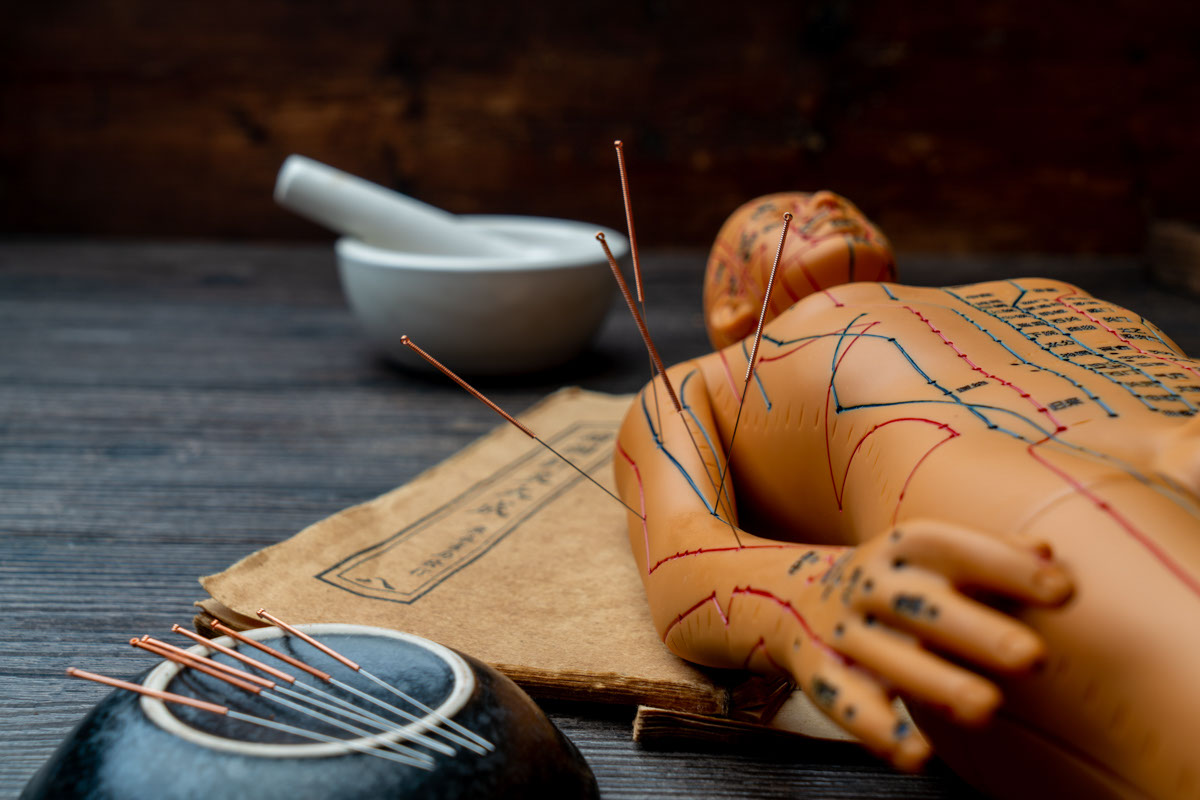
(VI) Constitution(體質)
The "constitution" mentioned in traditional Chinese medicine is the nature of the body. According to different classification methods, people will be classified according to their constitutional characteristics.
Nowadays, when people see a doctor in traditional Chinese medicine, they often hear the doctor say: "Your constitution is yang deficiency", "His constitution is damp heat", "You are prone to what disease", "He is prone to what disease"... People with different constitutions also have different tendencies to get sick.
(1) Classification of constitution
Current nine types of popular constitution according to traditional Chinese medicine:
- Balanced constitution; 平和質;
- Yang deficiency constitution; 陽虛質;
- Yin deficiency constitution; 陰虛質;
- Phlegm-damp constitution; 痰濕質;
- Damp-heat constitution; 濕熱質;
- Qi deficiency constitution; 氣虛質;
- Qi stagnation constitution; 氣鬱質;
- Blood stasis constitution; and 血瘀質;及
- Allergic constitution (also known as: special constitution). 過敏質(也稱:特稟質)。
People with different constitutions will have different performances in various aspects. For example, some people can eat a lot without gaining weight, while others gain weight even by drinking water; some people can stay in air conditioning all day without any problem, while others will catch a cold or have diarrhea if they are exposed to a little wind. These performances are all due to individual physical differences in the eyes of traditional Chinese medicine.
A person's constitution may not completely conform to the characteristics of a "typical constitution", but may be a mixture. For example, a person can be both Yang-deficient and Phlegm-damp, or Damp-heat and Blood-stasis.
The above is just for general information. If you want to know your own constitution, you should consult an experienced traditional Chinese medicine practitioner. And do not take "therapeutic" actions on your own.
(2) What factors are related to the formation of constitution?
The formation of constitution is the result of the combined action of congenital and acquired factors.
Congenital factors commonly include:
- The physical characteristics of parents;
- Conception; and
- The care during the fetal development process, etc.
Acquired factors include:
- Living environment;
- Dietary habits;
- Lifestyle;
- Life experiences;
- Mental state;
- Diseases suffered; and
- Social relationships, etc.
As the saying goes, "the local conditions and customs of a place nurture the people there"(一方水土養一方人), different geographical and climatic characteristics will lead to different physical characteristics. The constitutions of people in the south and the north are very different. People in the north are generally tall and strong, while people in the south are often light and agile. These characteristics are closely related to the climate of different regions. The north has distinct seasons, with clear alternation of spring, summer, autumn and winter, especially the cold winter, when the body's essence and energy are stored inside, ensuring the rhythmic growth of the body's "birth, growth, transformation, harvest, and storage" throughout the year. In the south, the climate is mostly hot, the characteristics of the four seasons are not obvious, and most of the time is in the state of energy release, lacking the accumulation and storage of the body's internal essence and energy in the northern winter. Therefore, people in the south cannot generally grow as tall and mighty as those in the north.
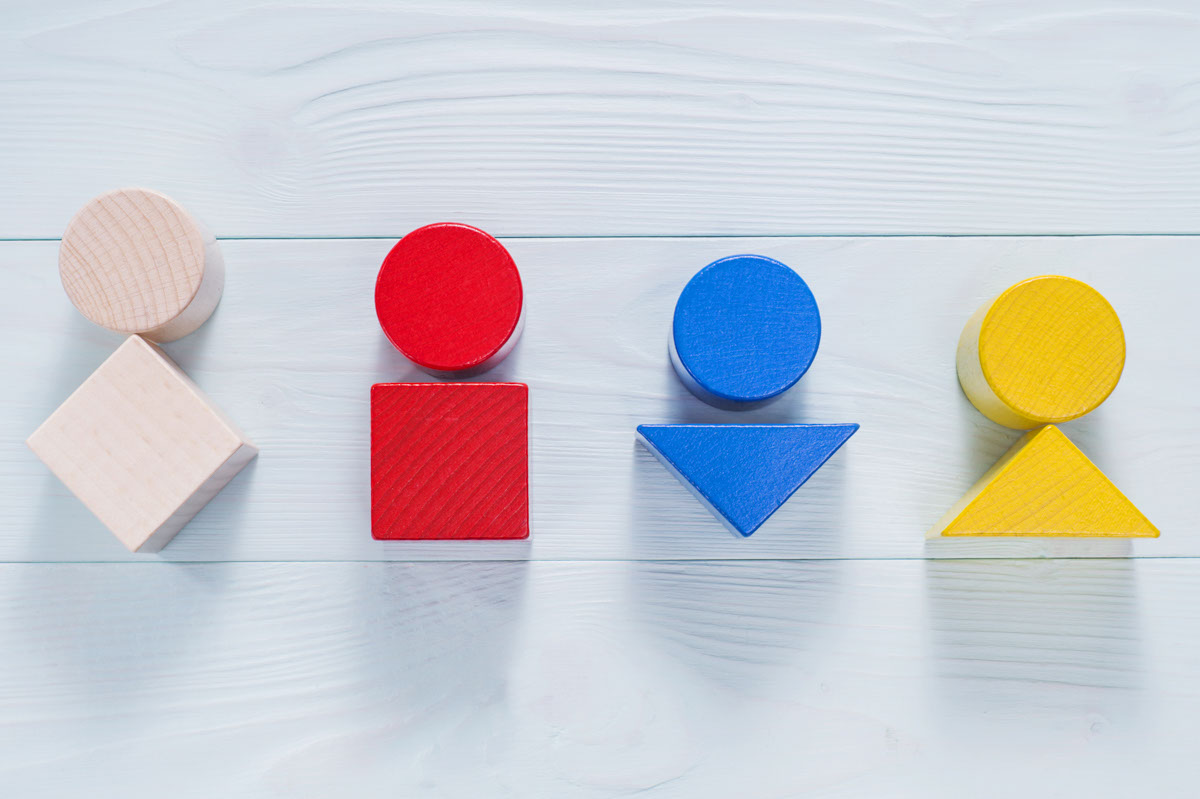
(VII) Preventive treatment of disease (治未病)
Traditional Chinese medicine often says: "The superior doctor prevents the disease." (上醫治未病)Preventive treatment of disease mainly includes: prevention before disease, prevention of change after disease, and prevention of recurrence after recovery.
・Prevention before disease(未病先防): refers to the need to pay attention to health preservation when there is no disease, to prevent the occurrence of disease. Traditional Chinese medicine pays the most attention to health preservation, emphasizing that people should cherish life, adapt to the natural environment, maintain healthy living habits, pay attention to adjusting their mental and emotional state, make the body's Yin and Yang balanced, and naturally harmonious.
・Prevention of change after disease(既病防變): This includes:
1. It refers to the period when there are some minor problems with the body but they have not developed into major diseases, also known as the sub-health period that people often talk about. Measures should be taken to regulate the body, prevent minor problems from becoming major diseases.
2. For some recurrent or periodic diseases, it should be remembered that during the remission period of the disease, the stage when it has not occurred, seize the opportunity to actively treat it to prevent the next attack or reduce the severity of the next attack. For example, some patients with asthma can undergo moxibustion (艾灸)treatment during the remission period of asthma, or find a traditional Chinese medicine practitioner to regulate the body and enhance physical fitness.
3. When a disease has occurred, in addition to seeking medical treatment as soon as possible, it is also necessary to take preventive measures to prevent the disease from further developing and worsening. This generally refers to the doctor's responsibility, but seeking medical treatment as early as possible to avoid delaying the condition is something that patients should keep in mind.
・Post-disease prevention(病後防復):
Means that the disease has been cured, but appropriate care methods should still be taken to prevent the disease from recurring.
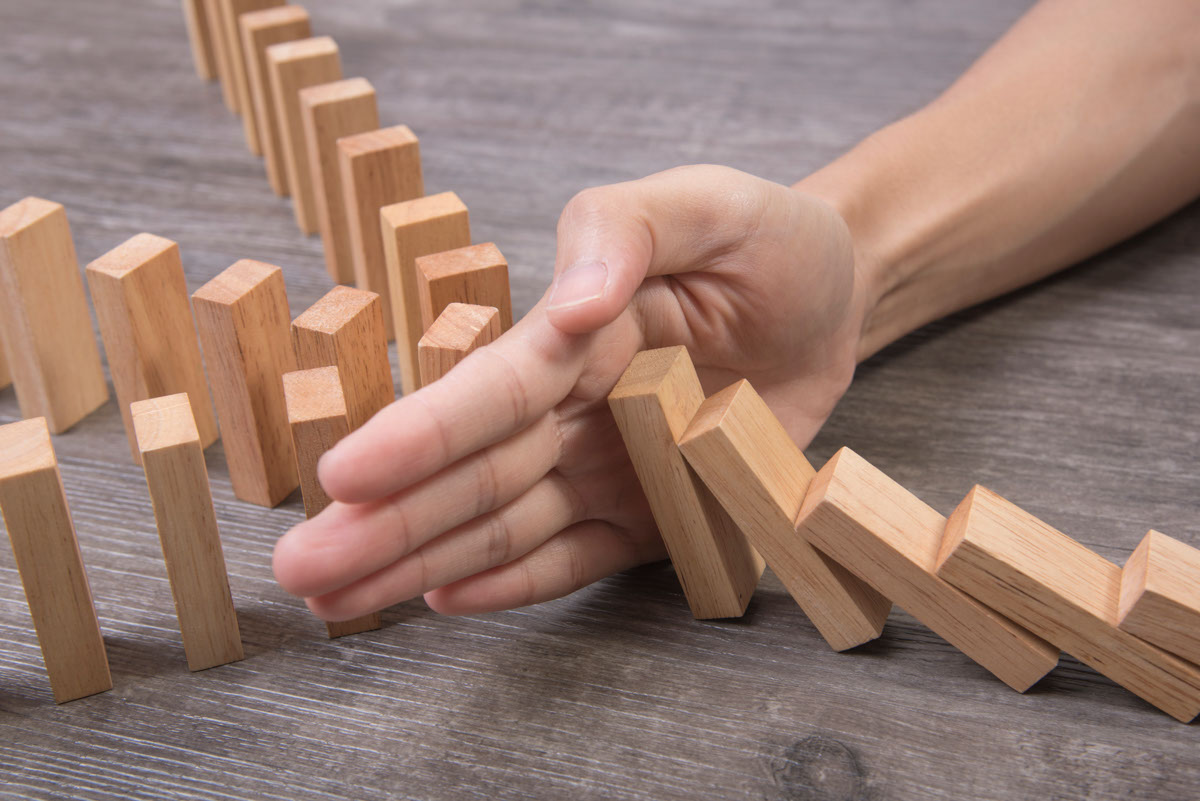
How to understand the relationship between "preventing disease before it occurs" and sub-health(亞健康)?
The characteristic of the sub-healthy population is that they subjectively feel various discomfort in their bodies, but various physical and chemical tests do not find any abnormalities, and no organic lesions are found. The World Health Organization found through surveys that about 75% of the total population is in a sub-healthy state.
The sub-healthy state is a transitional stage in the process of transforming from being healthy to being ill. The concept and method of "preventing disease before it occurs" in traditional Chinese medicine have therapeutic effects. Traditional Chinese medicine believes that the sub-healthy state often manifests as a vague syndrome(虛證) or vague syndrome but with some real syndrome (虛中夾實之證). Therefore, during treatment, you can choose to use methods such as “soothing the liver and regulating qi, nourishing yin and tonifying the kidney, strengthening the spleen and regulating the middle, and nourishing the heart and calming the mind”(疏肝行氣、滋陰補腎、健脾和中、養心安神). It has a significant effect on improving physical weakness and low organ function, and can effectively maintain the normal function of the body and protect the function of the organs.
(VIII) Health preservation(養生)
(1) Principle
The correspondence between man and nature and the balance of yin and yang are the principles of health preservation in traditional Chinese medicine. The core of the concept of health preservation is to comply with nature, control diet, and adjust emotions.
Simply put, the core of health preservation in traditional Chinese medicine is to tell people how to eat, sleep, work, and behave.
Many modern people's problems are due to not sleeping when they should be sleeping, staying up late to work, play games, or watch computers; not eating when they should be eating, dieting to lose weight or binge eating; as a result, they can be anxious, depressed, irritable, worried or fearful. The key point of traditional Chinese medicine health preservation is to tell people that they must establish healthy living habits and lifestyles, so that they can enjoy whatever they eat, fall asleep as soon as they lie down, and be in a good mood.
(2) What healthy lifestyles does traditional Chinese medicine recommend?
Being under high stress for a long time and in a bad mood will make people's physical fitness decline, posing a certain threat to their health. The following recommended health preservation methods can help maintain a healthy state and eliminate health risks.
- Sleep at midnight and noon
Traditional Chinese medicine suggests that people must sleep at "midnight and noon", that is, rest at midnight (11 pm – 1 am) and noon (11 am – 1 pm). Because midnight is when Yang Qi begins to rise, and noon is when Yin Qi begins to rise, keeping the body at rest during the alternation of Yin and Yang has important significance for health preservation. Modern people are busy at work and don't have time to take a nap. However, as long as you take a short rest, even if it's just only ten minutes, your nerves can relax, which can achieve the purpose of rest and improve the efficiency of work and study in the afternoon. Try to ensure that you go to bed at 11 o'clock in the evening. If you need to stay up late, try not to exceed midnight. Traditional Chinese medicine believes that from 3 to 5 o'clock in the night is the time when Qi and blood are distributed throughout the body. Resting at this time helps the body to maintain Qi and blood.
- Meditation
Ancient people often had the habit of "sitting in meditation", in fact, meditation helps to stabilize the body's Qi and blood. Some modern people like to meditate, which can be combined with sitting quietly, relaxing the body and mind, and focusing all attention on breathing, improving concentration. Through meditation, stress and fear are eliminated, and fatigue and anxiety are relieved.
- Pleasant mood
Traditional Chinese medicine believes that among the seven emotions, joy can bring great benefit to the body. As the saying goes: with a laugh ten years younger. Modern people are tense in life, and they should try to laugh more often. Or choose to watch some comedies and laugh more, which can lower the level of stress hormones and cholesterol, and stimulate appetite. A laugh can relax the muscles, improve immunity, and release bad emotions.
- Perceive nature
Traveling, looking at mountains and rivers, flowers and trees from a distance, listening to the birds and insects close; observing every grass and tree in nature in a completely relaxed state of mind and body make us feel the messages conveyed by nature. Understanding gains and losses, opening your heart, clearing the material desires, treating everything indifferently, and accepting the rule of nature in regard to life, old age, sickness and death can all help relax your body and mind.
- Moderate exercise
Moderate exercise is important for human health. Everyone can choose some exercises according to their own habits and preferences, and try to do more over time, which is very beneficial to the activity of the body's qi and blood. The elderly can appropriately choose activities that they can manage such as Tai Chi and Ba Duan Jin, which are beneficial to health maintenance and disease recovery.
(January 2022)





